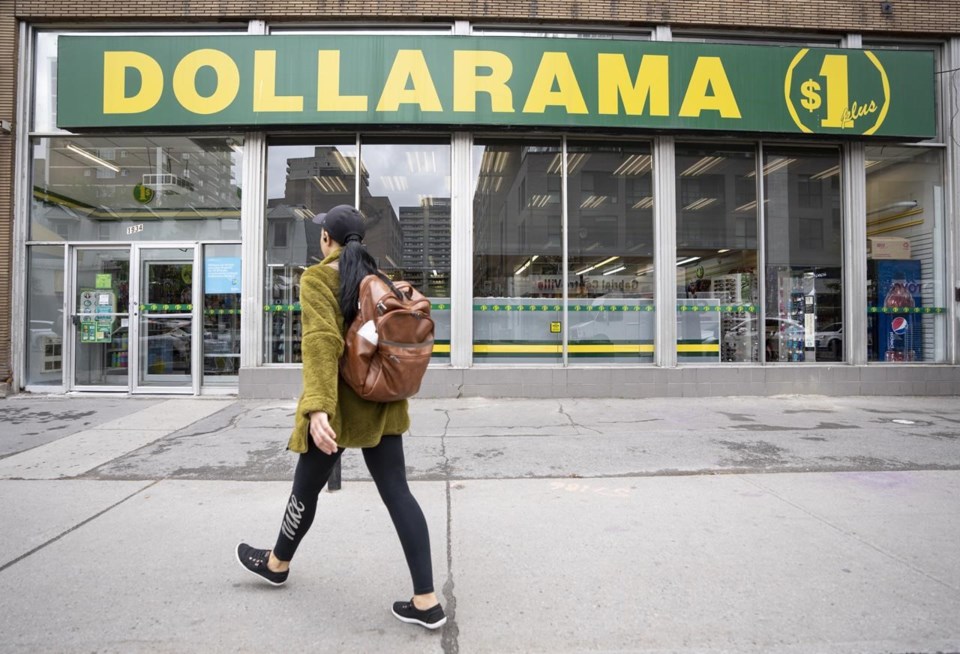If domestic manufacturers and suppliers keep pushing their prices up on food and several household goods, Dollarama Inc.'s chief executive says retailers will have no choice but to pass the increases on to customers.
"Retailers are doing their best not to push those costs on to the consumers, but retailers can only absorb so much," Neil Rossy told analysts on a conference call Wednesday to discuss the retailer's latest results.
He said the increases have come from the consumables category, which Dollarama defines as paper, plastics, foils, cleaning supplies, basic health and beauty care products, pet food, confectionary, drinks, snacks and other food products.
General merchandise, which runs the gamut from party supplies to greeting cards and electronics and kitchenware, hasn't seen the same shift in pricing pressures, Rossy added.
His remarks come as Canadians have been grappling with rising costs for the last two years, putting a strain on budgets and causing some to adopt more price-conscious behaviour.
Their approaches to shopping are being shaped largely by high interest rates and inflation, which eased considerably over the last year, reaching 3.1 per cent in October, but remains above the Bank of Canada's target of two per cent.Â
But inflation has had some positive impacts for Dollarama as customers have been drawn to the Montreal-based chain's lower prices, bringing added foot traffic and purchases to its stores.
The retailer said Wednesday that it earned $261.1 million or 92 cents per diluted share for the 13-week period ended Oct. 29, up from a profit of $201.6 million or 70 cents per diluted share a year earlier.
Sales totalled $1.48 billion, up from $1.29 billion in the same quarter last year.
Dollarama attributed much of the increase in sales to growth in its total number of stores and increased comparable-store sales, which grew 11.1 per cent. The number of transactions rose 10.4 per cent and the average transaction size gained 0.6 per cent.
Irene Nattel, an analyst with RBC Dominion Securities Inc., took such numbers to mean that Dollarama's strategy "resonates with cash-strapped Canadians," she said in a note to investors. The quarter's results reinforce the narrative that management is focused on productivity and efficiency, she wrote.
Asked by an analyst whether Rossy is worried customers who "traded down" to Dollarama to cope with price increases will "trade up" if inflation eases more, the chief executive brushed off concerns.
"When they're trading down, consumers tend to look at Dollarama as a solution....and when the market and the economy are strong, there are just more dollars to spend," he said.
"The most important thing is that we convert them into believers in Dollarama's value and convenience so that they keep coming back regardless."
Rossy's confidence is baked into the company's outlook, which now forecasts comparable-store sales for its full year to grow 11 to 12 per cent, up from earlier expectations for growth of 10 and 11 per cent.
He was also pleased to share that many of the staffing woes, which left retailers desperate for workers following pandemic lockdowns, have subsided.
"Labour is stable and has not been a challenge the way it usually is at this time of year, so that's wonderful news," he said.
At the store-level, he said, it's been "a bit of challenge."
"But it's manageable and we've adapted systems and processes to try to streamline the hiring process to make it as easy as possible."
This report by The Canadian Press was first published Dec. 13, 2023.
Companies in this story: (TSX:DOL)
Tara Deschamps, The Canadian Press



